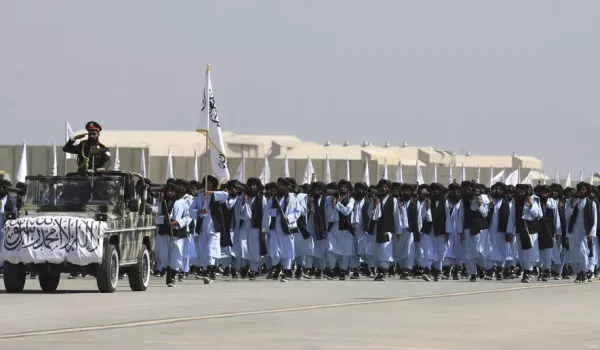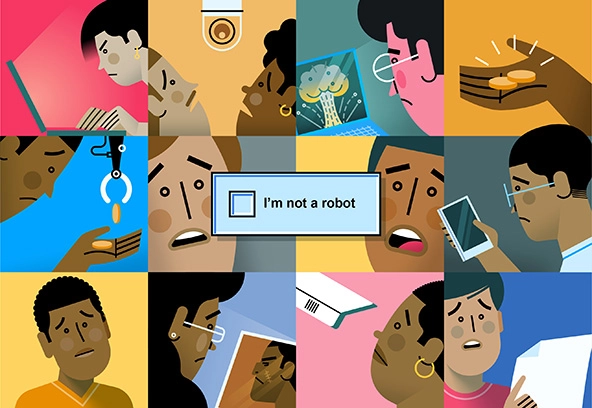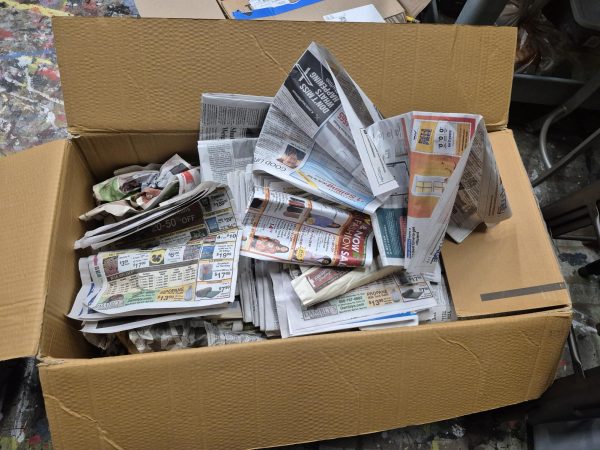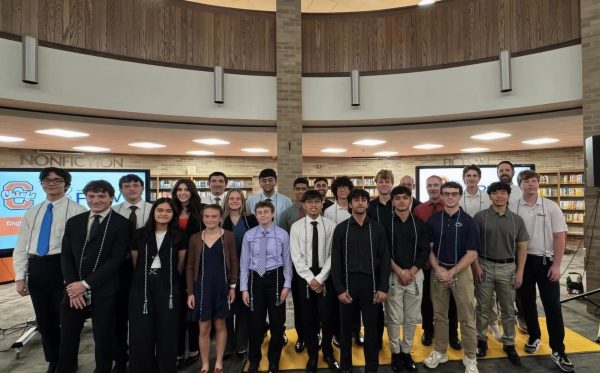The True Story About NJROTC
Major and Chief Celebrating Ten Years at Cherokee
For the average student, the word “ROTC,” may conjure up an image of a fellow student that they may have seen in the hallways: a peer dressed in a neat uniform. However, many do not know what ROTC actually is. Its challenges, ideas, ambitions, and the students and teachers who make it possible are completely unknown to much of the Cherokee population.
NJROTC, or Naval Junior Reserve Officer Training Corps, is a leadership program provided partially by the Navy. This program aims to teach its students about patriotism, responsibility, discipline, and a variety of other topics through classes, extracurricular activities, and experienced instructors. At Cherokee High School, these instructors are Major Meehan and Chief Harvey.
According to Chief Harvey, NJROTC gives kids more than just information and skills: it gives them another place to belong. While some students find their place in theater, band, or sports, other kids, whether they see a future for themselves in the Armed Forces or not, feel the same level of comfort and belonging in NJROTC. “I think it’s important to have everybody in this community feel welcome somehow.”
Chief wants students to understand that NJROTC is not a recruiting program that commits students to a future in the military. While it informs students on topics such as the Navy, it truly is a leadership and citizenship program more than anything else. Perhaps, the greatest quality needed for success in the program is not physical strength or a commitment to a military future: it is responsibility, which makes this program a possibility for anyone.
A big misconception about NJROTC is that the instructors of this program, Chief Harvey and Major Meehan, are “mean” or “strict.” “He’s [Major Meehan] very nice, and I’m a big teddy bear,” Chief Harvey jokes.
NJROTC kids are at a vast minority at Cherokee. Chief Harvey believes that it is a result of the “uniform” rule: ROTC kids are required to wear their uniform once a week. However, as he goes on to say, it seems odd, considering the abundance of patriotism and military support in the community.
Chief Harvey, a retired member of the Navy after twenty-four years of service, signed up to teach the NJROTC program to get “the best of both worlds.” By being an instructor, he gets to be retired while also pursuing his interests in teaching. He first learned about this program while he was living in Hawaii and saw a retired chief teaching a group of kids on a ship.
Upon being told about the program, he said that his first reaction was, “Hold up. You have a job to go from the middle of the US to Hawaii to show kids ships and submarines? Sign me up.”
NJROTC is primarily cadet run. The members of the program have countless opportunities for leadership: there isn’t just one “Captain” or “President.” The program does more than just provide leadership in high school. Chief Harvey shared that quite a few ex-ROTC members at Cherokee have gone on to do great things. Some have gotten prestigious scholarships, while others have joined the Army, Navy, or Air Force.
Becoming a member of NJROTC doesn’t just help with future success: it is a program that assists students with their current high school education. ROTC classes, if taken for three years, cover all three electives needed to graduate. Moreover, if a student does join the military, the time they’ve put in in ROTC will come back to them in monetary value and experience, “It really pains me when people who graduate from Cherokee say ‘Hey Chief, guess what, I joined the Marine Corps.’ If they did ROTC in high school, they would have gotten three hundred dollars a month more and saved eighteen months.”
At the end of the day, the program offers much more than people think. “It’s not algebra,” Chief quips. “You just gotta be responsible.”
Students believe that ROTC is a commitment that might not align with the beliefs of Cherokee society; however, ROTC member, Stephen Vanna, says “It’s not really a big deal to wear the uniform or be in ROTC.”
Other members said that ROTC is a relief from rigorous academics at Cherokee and that the bond they have created with both Chief and Major is incredible.
“I think I’ve had one quiz in, like, three years,” one member quotes.
“We’ve known them for years,” one member quotes.
“They don’t act like normal teachers,” another asserts.
ROTC members believe that they have become more disciplined and responsible. The program has helped them learn more than just about the Armed Forces as they have also developed certain life skills. They have a community where everyone feels safe. They believe that other students need to take the courses offered at Cherokee. ROTC is more than just a prerequisite to going into the military, it is a small community that changes one’s outlook on life.









